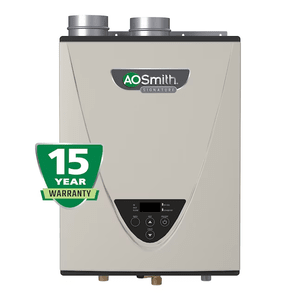When we shop around for a water heater, we get two options. One is the electric water heater and the other is the gas water heater.
In India, electric water heaters are popular as water heaters are considered good-to-have appliances rather than must-have appliances.
In Western countries, people can’t survive without water heaters.
Water heaters can be powered by either gas or electricity. Both have their advantages and disadvantages.
This article will discuss Gas vs. electric Water heaters and determine which one is better and why.
What Is An Electric Water Heater?
As the name suggests, electric water heaters are powered by electricity. All you need to do is give a power connection to the water heater, and you are good to go.
You don’t need any infrastructure separate from whatever plumbing system you have. These water heaters can provide instant hot water, as they use a heating element rather than a heat exchanger.

You will always get consistent hot water from electric water heaters as the heating element can give constant heat output.
What Is A Gas Water Heater?
Gas water heaters are powered by gas. It can be LPG or natural gas. You need a separate plumbing system to flow the gas into the water heater. You also need a separate control mechanism to control the flow of gas.

Gas water heaters need a heat exchange to ignite the gas instead of a heating element in an electric water heater.
Gas electric heaters are preferred in Western countries as they provide an uninterrupted flow of hot water without depending on electricity, and it is cheaper too.
Gas vs Electric Water Heater
We will figure out the differences between gas and electric water heaters based on the parameters outlined below.
Infrastructure
You need a separate and dedicated plumbing system for gas water heaters. You also need a solid control system to control the flow of gas. Otherwise, there are chances of accidents.
Even though you have the necessary infrastructure, you need to spend on regular maintenance. This is on top of what you spend on the water heater.
An electric water heater is a kind of plug-and-play system. Just hook it up to a 15A socket and get hot water instantly.
No need to spend on any infrastructure as you don’t need it. You also get the flexibility of moving the water heater anywhere you want without worrying much about the change in the plumbing system.
Efficiency
Electric water heaters are more energy efficient as these appliances can provide almost instant hot water without much standing loss.
On top of that, electric water heaters use different advanced technologies to protect the tank from corrosion, which helps to retain the water temperatures for a longer duration and saves on power.
The standing loss in the gas water heater is more significant as the gas has to pass through a heat exchanger and a separate plumbing system.
However, since gas is cheap, many people can offset this loss quickly.
Operational Cost
In India, both electricity and gas are costly. Unless you are getting subsidized gas, it does not make any sense to use a gas water heater, considering the high initial investment.
Electricity is costly too, but if you can control the usage of electricity, you may get a subsidized rate, which might be a good reason to use electric water heaters.
Initial Setup Cost
The initial setup cost is almost 2-3 times more for gas water heaters, as you need a sophisticated structure to store and flow gas.
For gas water heaters, you need a constant flow of gas. In India, we get gas in cylinders. So using a gas water heater is out of the question unless you have a piped gas connection.
In the case of an electric water heater, the initial cost is almost none. You can install the water heater and connect it to a power source. That’s it.
Maintenance Cost
You need to spend more on the maintenance of gas water heaters, as they need a separate plumbing system to route the gas into the water heater.
You also need to spend on storing the gas if you don’t get a continuous flow of gas.
Maintenance costs for electric water heaters are very low, as you need to spend on the maintenance of the water heater and not on the infrastructure.
Safety
Both Gas and Electric water heaters offer a range of safety features. However, in the case of gas water heaters, you need to be more careful in protecting the gas storage and the flow of gas.
You also need to ensure that the gas line does not come close to any power source, which can ignite it and cause accidents, as both LPG and Natural gas are highly flammable. Gas leakage is a concern, too.
In the case of electric water heaters, you need to ensure that the earthing is done correctly so that you do not get an electric shock.
You also need to ensure that the water temperature does not go beyond the acceptable limit, which could cause a fire hazard.
Conclusion: Gas vs Electric Water Heater
Electric Geysers are preferred in India due to the availability of electricity and low maintenance. Setting up a separate infrastructure for gas water heaters is not a viable solution for many consumers.
However, gas water heaters are gaining popularity, and hopefully, we will see a growth in demand in the future.